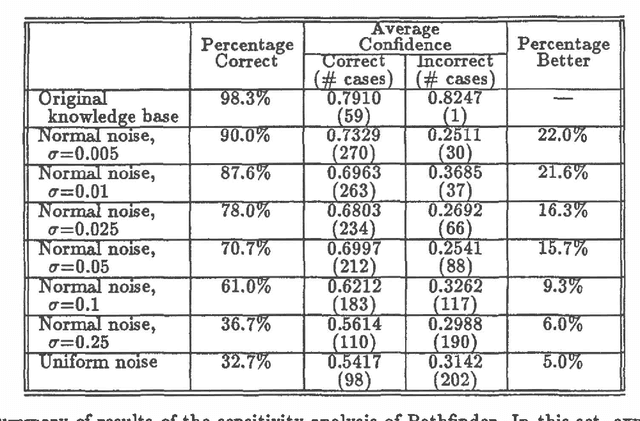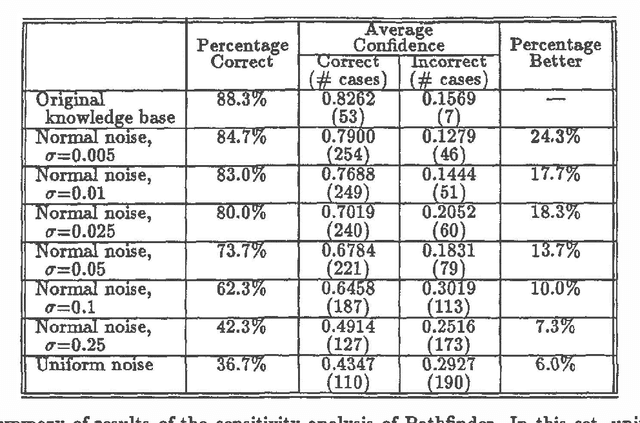A Sensitivity Analysis of Pathfinder
Paper and Code
Mar 27, 2013

Knowledge elicitation is one of the major bottlenecks in expert system design. Systems based on Bayes nets require two types of information--network structure and parameters (or probabilities). Both must be elicited from the domain expert. In general, parameters have greater opacity than structure, and more time is spent in their refinement than in any other phase of elicitation. Thus, it is important to determine the point of diminishing returns, beyond which further refinements will promise little (if any) improvement. Sensitivity analyses address precisely this issue--the sensitivity of a model to the precision of its parameters. In this paper, we report the results of a sensitivity analysis of Pathfinder, a Bayes net based system for diagnosing pathologies of the lymph system. This analysis is intended to shed some light on the relative importance of structure and parameters to system performance, as well as the sensitivity of a system based on a Bayes net to noise in its assessed parameters.
 Add to Chrome
Add to Chrome Add to Firefox
Add to Firefox Add to Edge
Add to Edge